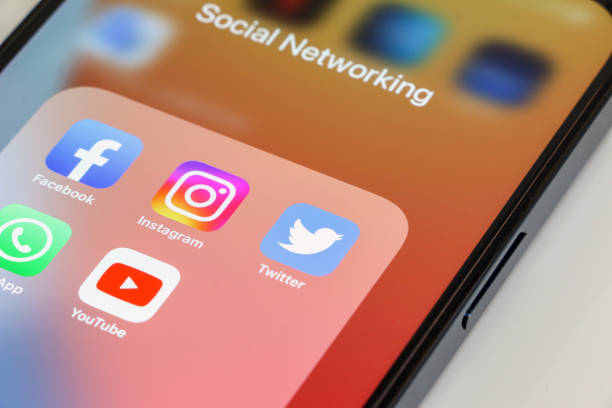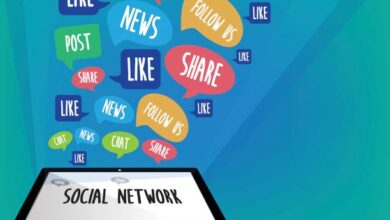Decoding the Impact of Facebook on Our Lives

Facebook – an omnipresent force in the digital world that most of us have incorporated into our daily lives. It is a platform that has single-handedly transformed the way we communicate, work, and consume information. In this blog post, we will delve deep into understanding the different ways Facebook has influenced and altered various aspects of our lives.
Facebook – A Convenient Communication Tool
Facebook has undoubtedly revolutionized the way we connect and interact. Born from humble beginnings as a social network for Harvard students, it has burgeoned into a global force, connecting people from every corner of the world at the click of a button.
Facebook offers a convenient way to keep in touch with loved ones, classmates, colleagues, and even complete strangers. Long-distance relationships, both personal and professional, have been made easier by the ability to communicate in real time, regardless of geography. But it’s not just about staying in touch – it’s also about sharing. Be it a heartwarming photo from a family gathering, a snapshot of a breathtaking sunset, or a thought-provoking article, Facebook allows us to share these moments and thoughts with our circle and beyond.
The platform is also a space for intellectual discourse, serving as a forum for individuals to express their opinions, exchange ideas, and engage in conversations on a range of topics. Whether it’s debating the latest political news, discussing favorite TV shows, or raising awareness about social issues, Facebook provides an outlet for a diversity of voices to be heard.
However, it’s not just about individuals. Organizations and groups also utilize Facebook to build communities, foster engagement, and facilitate conversations among members. From hobby clubs and alumni associations to non-profit organizations and religious groups, Facebook has become a go-to platform for community building and engagement.
It’s clear that Facebook has undeniably altered the way we communicate, for better or worse. It has broadened our horizons, allowed for widespread information dissemination, and turned the world into a global village.
Changing the Landscape of Business and Marketing
Facebook’s influence extends far beyond personal communication and relationships, carving its own significant niche in the business and marketing realms. This titan of social media has not just become a tool for businesses, but a necessity. Right from the neighborhood bakery to multinational corporations, everyone is harnessing the power of this dynamic platform to enhance their marketing strategies and customer engagement.
Facebook’s vast arsenal of tools designed for businesses is its biggest game-changer. From customizing ad experiences to leveraging demographic targeting, it has reinvented the way businesses approach their audience. Ads can now be tailored to suit the interests and preferences of a target demographic, thus personalizing the marketing experience. This in turn, enhances the reach and effectiveness of promotional campaigns, a feature that businesses find particularly attractive.
The power of a Facebook page as a business tool cannot be underestimated. In this digital age, a business Facebook page often holds as much significance as a company’s official website.
It is a place where businesses can not only showcase their products or services, but also interact with their customers, gather valuable feedback, and foster a sense of community.
Facebook has also ushered in a new age of market research. The platform’s built-in tools allow businesses to gain valuable insights into customer behavior and preferences. This wealth of data is invaluable for businesses, helping them to fine-tune their strategies, identify new opportunities, and make more informed decisions.
Another significant way in which Facebook is transforming business is through its marketplace feature. This virtual marketplace has made buying and selling goods simpler and more accessible. Small businesses, in particular, have found this feature to be a game-changer, enabling them to reach a larger audience without the constraints of a physical location.
Facebook’s entry into the business arena is more than just an evolution – it’s a revolution. It has democratized marketing, giving businesses of all sizes the ability to reach a global audience, amplify their message, and foster a deeper connection with their customers. Facebook’s impact on business and marketing is profound, continuing to shape and redefine the landscape with every new feature and innovation it introduces.
Privacy Concerns and Misinformation
The remarkable reach of Facebook also opens the door to some not-so-pleasant facets: data privacy issues and the rapid spread of false information. The vast digital footprint left by billions of users has unfortunately led to several instances of data breaches, prompting widespread concerns about how personal information is used and safeguarded.
Amid all the positives Facebook brings to the table, the misuse of personal data stands out as a glaring downside. There have been numerous allegations and even lawsuits tied to unauthorized data harvesting and distribution. It’s an issue that continues to stir up debate and has led many users to question their privacy on the platform.
While the company has taken steps to address these concerns, the issue of data security and privacy remains a high-priority challenge for Facebook to navigate.
Meanwhile, the platform’s role as a news source has opened up another can of worms: misinformation. Facebook’s vast user base and the speed at which information travels on the platform make it an easy target for those looking to spread false or misleading content.

The consequences of this have been far-reaching, influencing everything from elections to public health measures.
It’s an issue that goes beyond just fake news. Misinformation on Facebook has fueled conspiracy theories, incited violence, and created divisions among communities. This uncontrolled spread of misinformation has cast a shadow over the platform’s credibility and its impact on society.
Addressing these challenges is no easy task. It requires a balance between freedom of speech and responsible content moderation. As users, we must also play our part, staying informed about our privacy settings, and practicing critical thinking when consuming and sharing content.
In the grand scheme of things, the darker side of Facebook – privacy issues and misinformation – remains a critical area for the platform to tackle. It’s a pivotal aspect of the Facebook impact, serving as a reminder of the challenges that come with the territory in this digital age.
Impact on Mental Health and Well-being
Facebook, while providing an extensive platform for communication and self-expression, simultaneously throws open the door to the less-talked-about realm of mental health issues. A seemingly harmless scroll through our news feed can, at times, give rise to an insidious and incessant need to measure our lives against those of others. This social comparison, often prompted by the glitzy and cherry-picked snapshots of people’s lives, can lead to a simmering pot of negative emotions – inadequacy, envy, anxiety, and even depression.
The phenomenon of “Facebook envy” is a glaring example of the unintended psychological impact of this digital titan. A casual browse can turn into a tortuous journey of comparison – with other people’s vacation photos, their gourmet meals, their successful careers, and their picture-perfect families. Amid the deluge of carefully curated life highlights, it’s easy to feel our own lives falling short.
Yet, it’s critical to remember that the lives we see on Facebook are often airbrushed versions of reality, meticulously crafted for public consumption. It’s the equivalent of comparing our behind-the-scenes footage with everyone else’s highlight reel.
The relentless pursuit of validation through likes, shares, and comments can further exacerbate feelings of insecurity and self-doubt.
In some cases, Facebook usage can even spiral into addiction, with users obsessively checking their feeds, inboxes, and notifications. This compulsion to stay connected and updated can rob us of precious time and peace of mind, contributing to heightened stress levels and sleep disorders.
Despite the ubiquity of these challenges, it’s important to underscore that Facebook, like any other tool, is what we make of it. A mindful approach to its usage can mitigate many of these psychological pitfalls. It’s crucial to approach the platform with a sense of perspective and to be aware of its potential influence on our mental well-being.
Taking regular breaks from the platform, exercising discretion in what we consume and share, and actively focusing on genuine, real-life connections can all contribute to a healthier Facebook experience. Additionally, using the platform to foster positive interactions, like supporting friends in their endeavors or sharing uplifting content, can help to build a more supportive and empowering online environment.
While the negative impacts on mental health are a pressing concern, they are not an inevitable consequence of using Facebook. Understanding these potential effects is the first step towards mitigating them, paving the way for a balanced and mentally healthy Facebook experience.
Driving Social and Political Movements
In the midst of the numerous challenges and controversies, Facebook’s role as a catalyst for social and political change is an influential facet of its impact. This digital platform has emerged as a mighty tool in the hands of ordinary people, helping to mobilize and galvanize movements that have resonated across the globe.
From the Arab Spring in the Middle East to the impassioned Black Lives Matter demonstrations, the role of Facebook in organizing and rallying support cannot be underestimated. It has become a virtual megaphone, amplifying voices that might otherwise go unheard. It’s a platform that emboldens ordinary citizens to step into the role of changemakers, allowing them to spark discussions, raise awareness, and garner support for their causes.
In this digital arena, even those on the sidelines can contribute to the discourse, sharing posts, signing petitions, or simply learning about the issues at hand. This ability to democratize involvement has bolstered the reach and impact of these movements, ensuring their message reverberates far beyond physical borders.
That said, Facebook’s role in social and political movements is not without its complexities. The platform’s potential for spreading misinformation can cloud issues, distort narratives, and even incite unwarranted hostility. This highlights the need for a balanced approach, with users exercising discernment and critical thinking when interpreting and disseminating information.
Nonetheless, Facebook’s role in mobilizing social and political change is undeniable. It has reshaped the landscape of activism, turning the internet into a potent platform for progress. As we navigate the complexities and implications of this digital age, the impact of Facebook on social and political movements remains a significant part of the conversation.



